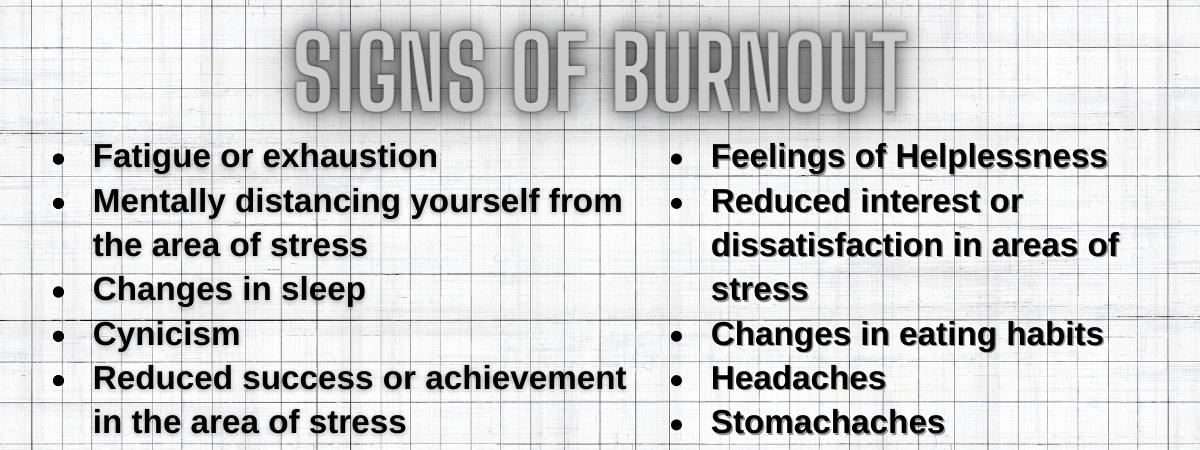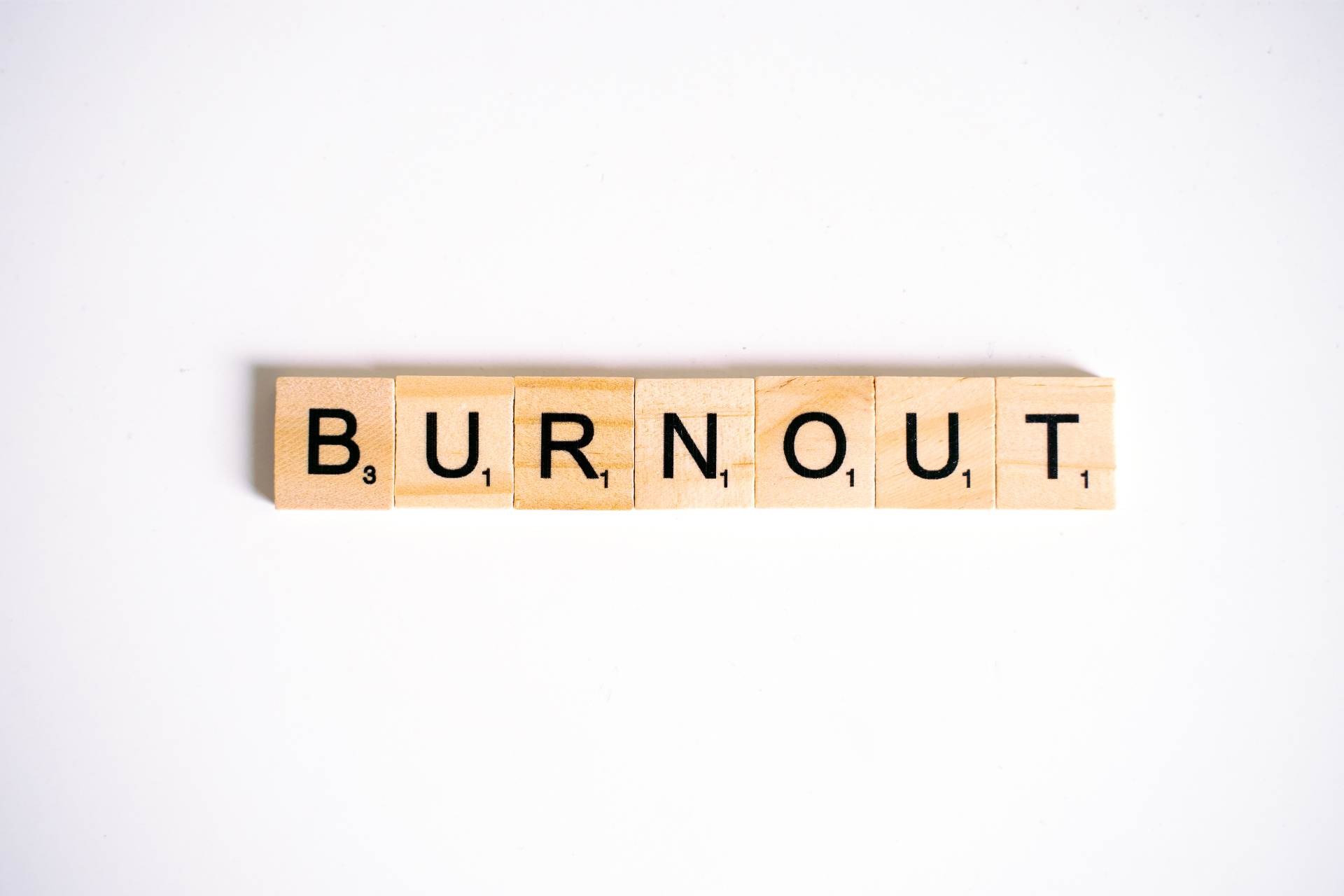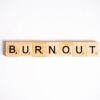Are you faced with continuous demands with unmeetable expectations? If so, you may be vulnerable to burnout.
In a 2021 survey of 1,500 U.S. workers, more than half said they were feeling burned out as a result of their job demands.
- Burnout results from chronic stress that has not been successfully managed. People experience burnout differently. You may not realize you are burnt out until you are too tired to function as you typically would.
- When a person is under stress, their body will make higher than normal levels of hormones to help them have more energy to get through difficult situations. Over time, this process can be harmful for physical and mental health.
- Burnout is more widely talked about in regards to a person’s workplace, however you can experience burnout in various parts of your life.
- What are the signs that you might be feeling burnt out?
- Fatigue or exhaustion
- Mentally distancing yourself from the area of stress
- Changes in sleep
- Cynicism
- Reduced success or achievement in the area of stress
- Feelings of Helplessness
- Reduced interest or dissatisfaction in areas of stress
- Changes in eating habits
- Headaches
- Stomachaches
Note: Burnout can develop alongside depression or anxiety, both of which can cause similar physical symptoms of burnout. However, burnout tends to be a response to a specific environment or situation.

- If you are noticing signs of burnout, it might be helpful to…
- Identify the root of the problem. Chronic stress can have a variety of causes — financial problems, relationship concerns, and caregiving strains, among other things.
- Increasing social support and self-care. Talking to a therapist, meeting with friends, exercise/movement, and getting enough restful sleeping.
- Identifying and advocating for better working conditions. When burnout is related to your professional life, it may be helpful to brainstorm ways your employer can help. For example: no meeting days, quiet areas for breaks, and scheduling regular time off.
- Make time for your hobbies and interests. Scheduling time for the things you love to do can increase your feeling of control.
- Consider seeing your primary care doctor or a mental health professional. They can help determine whether these signs and symptoms are driven by stress or other physical conditions.
- Resources
- Emily Nagoski and Amelia Nagoski: The cure for burnout (hint: it isn’t self-care) | TED
- “They detail three telltale signs that stress is getting the best of you — and share actionable ways to feel safe in your own body when you’re burning out.”
- Burnout: The Secret to Unlocking the Stress Cycle by Emily Nagoski, PhD, Amelia Nagoski, DMA
- “Explains why women experience burnout differently than men—and provides a simple, science-based plan to help women minimize stress, manage emotions”
- Emily Nagoski and Amelia Nagoski: The cure for burnout (hint: it isn’t self-care) | TED
Resources
Burn-out an “occupational phenomenon”: International Classification of Diseases
Burnout and stress are everywhere
Your Body Knows You’re Burned Out
Burnout: 5 Signs and What to Do About It – Cleveland Clinic
Job burnout: How to spot it and take action – Mayo Clinic






